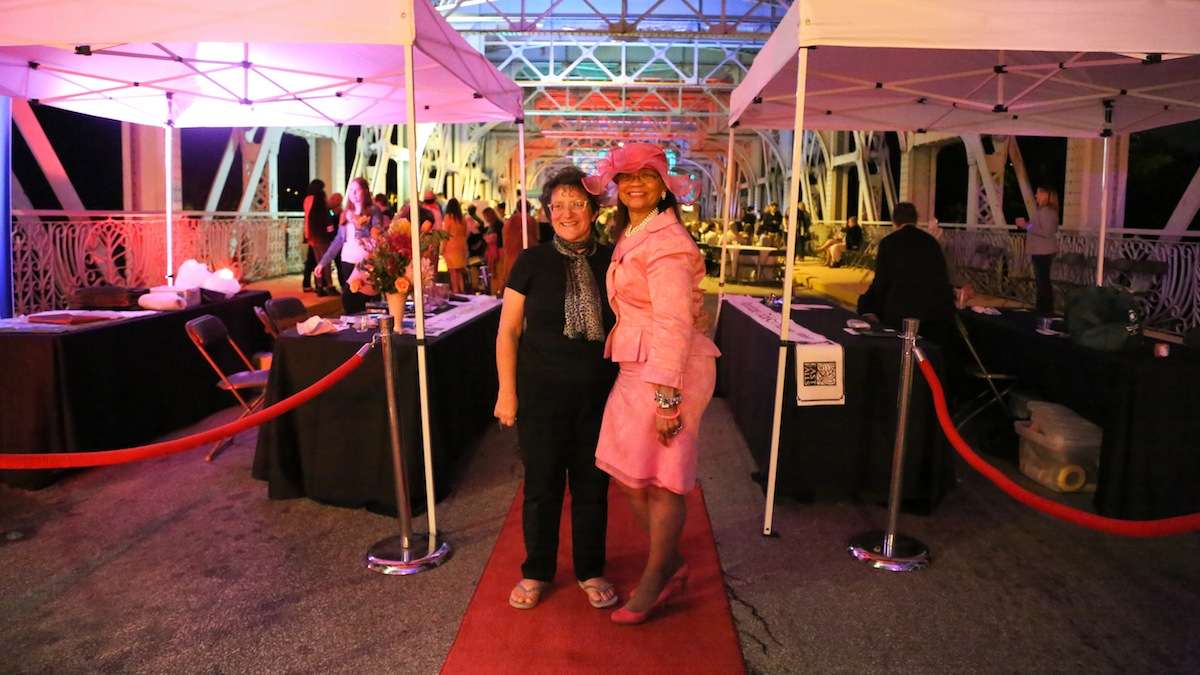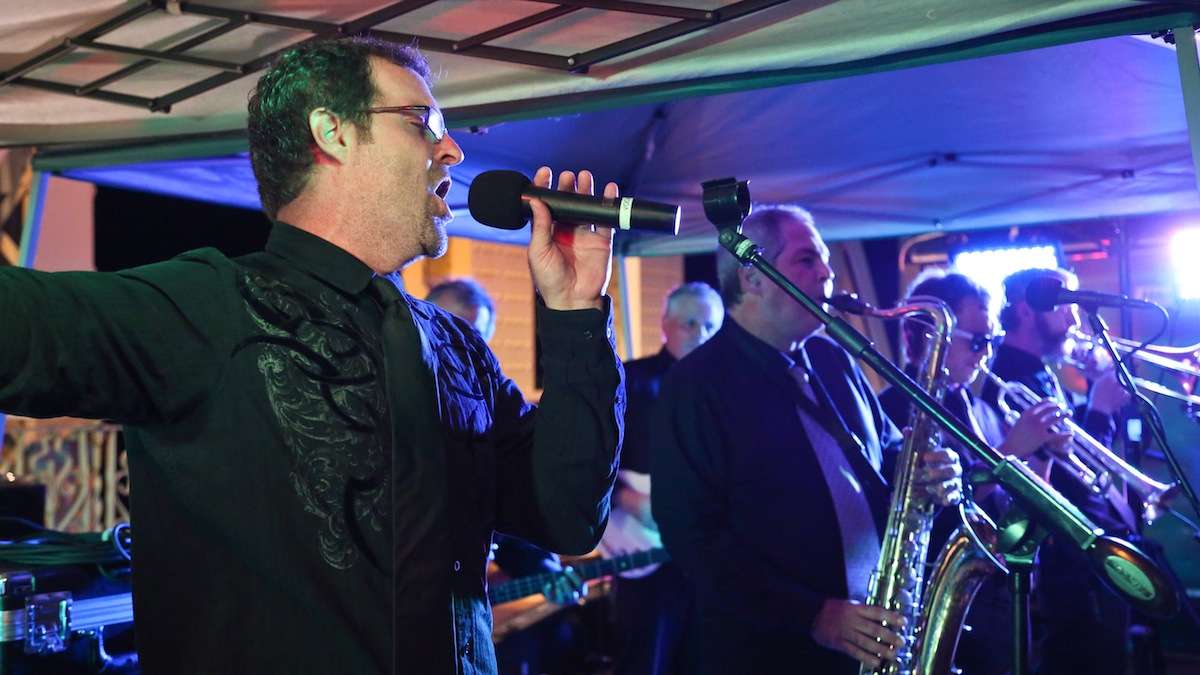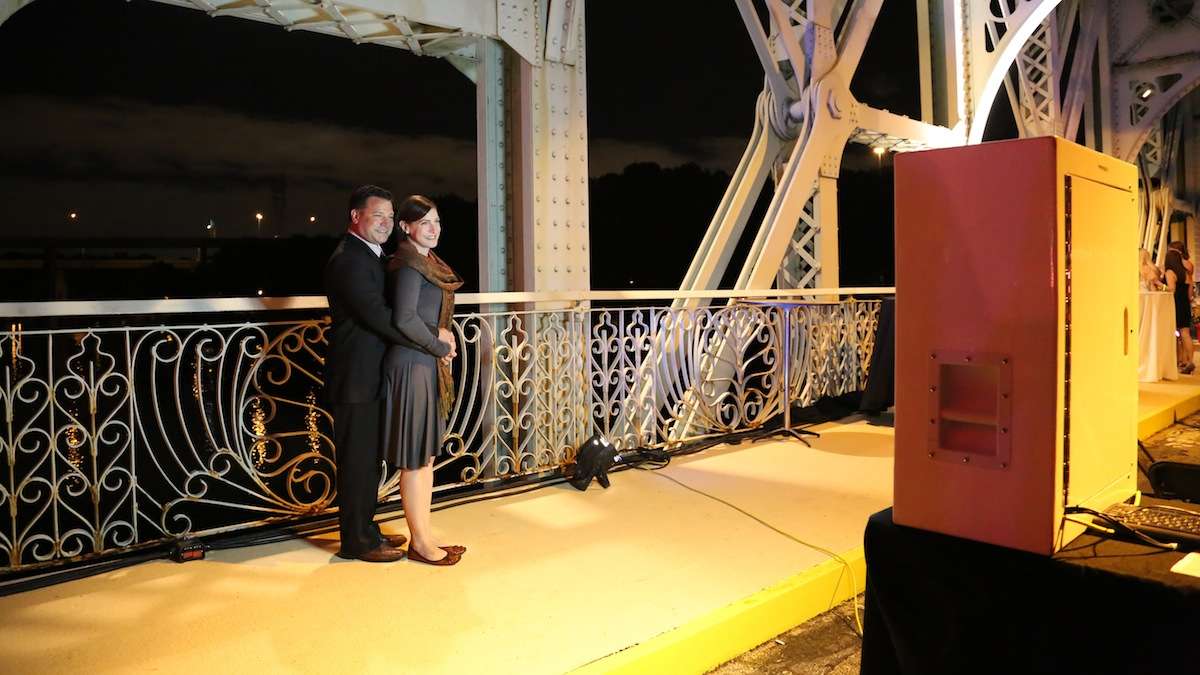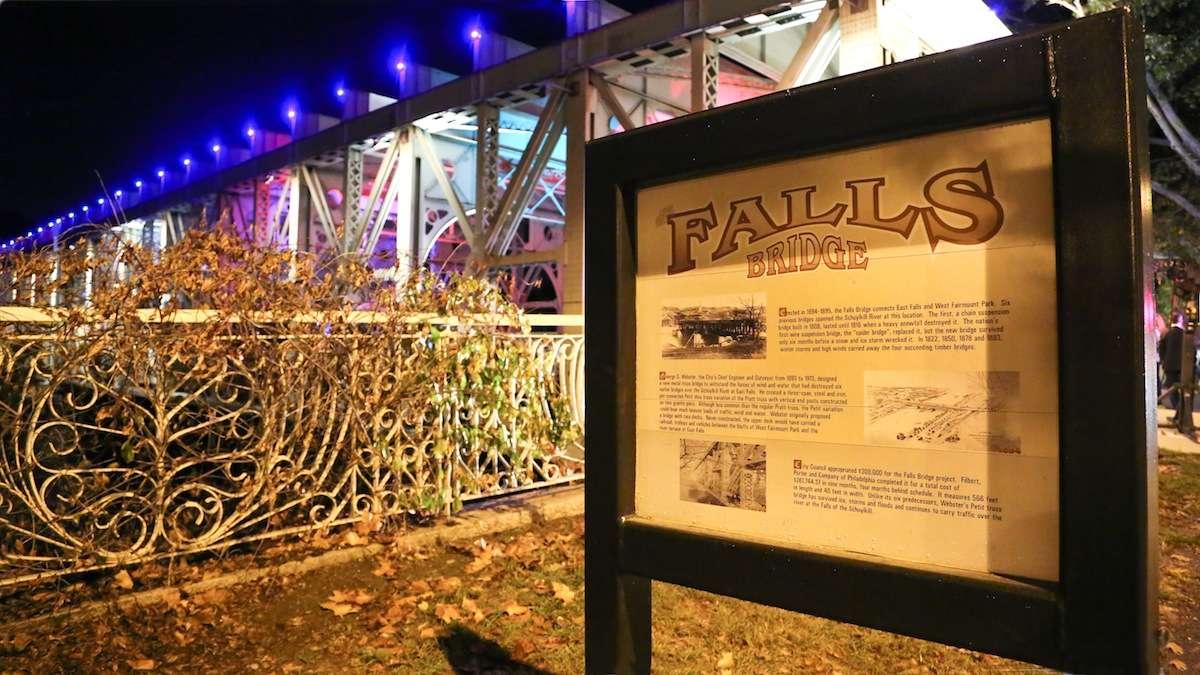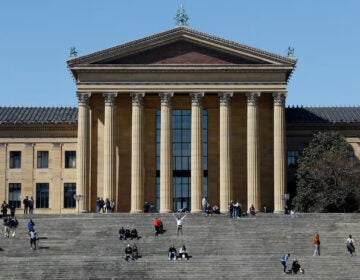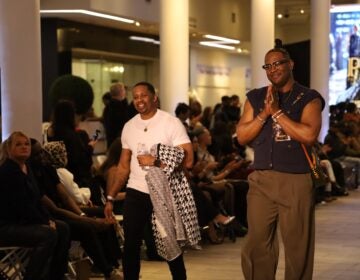Fringe Festival reviews: ‘The Body Lautrec’ and ‘The Rape of Lucrece’
A duo of reviews from Howie Shapiro; “The Body Lautrec,” and “The Rape of Lucrece.“
THE BODY LAUTREC
Locally based theater artists Mary Tuomanen and Aaron Cromie have produced their own collaborations several times, inventive and physical work that stretches the form of theater to tell stories in unusual ways. Nothing I’ve seen them do, though, equals the bar they set – and they surpass – in the ambitious “The Body Lautrec,” their dive into the murky life of post-impressionist French artist Henri de Toulouse-Lautrec.
The 75-minute piece is directed by Tuomanen and puts Cromie in the role of Toulouse-Lautrec – in his make-up and disheveled black-suit costume, Cromie looks very much like the artist in pictures taken before he died in 1901 from drinking and syphilis. He was 36 and had created more than 6,000 pieces of art, about 80 percent of them drawings.
He was also a misfit who struggled when he walked, the result of a congenital bone problem as much as his liquor. Toulouse-Lautrec, in all his moods and manipulations, comes across clearly in “The Body Lautrec,” whose title reflects his own body, his vast body of work, and the bodies he made his own by recording on canvas the action in dance halls and clubs and whorehouses of Paris.
“The Body Lautrec” uses four actresses – Kate Raines, Christie Parker, Kittson O’Neill and Malgorzata Kasprzycka – to play the dancers and prostitutes who exploit Toulouse-Lautrec as he exploits them in return. Some of them play the doctors who come in and out of his life, all signified by a single character with a know-it-all face that’s a puppet head designed by Cromie. (He also created the scenery and props, which include two skeletons. The smaller of these is a puppet the show uses to great effect to mirror the artist himself.)
The show’s original music and lyrics are by Heath Allen, who accompanies the cast and sets the mood as he plays piano onstage. A song in which the women tell us what they really think about the customers who come to dally and to watch them dance is particularly clever. The women are superb in tough roles that require a variety of movement, strange expression and, in this script, nudity. The excellent Cromie is fascinating to watch as a groveller, a drunk, a free spirit, a lost soul, a man whose life is seeped in debauchery and an artist bordering on pornographer.
_“The Body Lautrec” runs through Sept. 21 at Caplan Recital Hall of the University of the Arts, on the 16th floor at 211 S. Broad Street.
THE RAPE OF LUCRECEIt’s a rare opportunity to hear a reading of Shakespeare’s poetry – rarer still, to be able to witness it performed as a piece of theater. I wish I’d been able to see Dan Hodge’s extraordinary performance-reading of “The Rape of Lucrece” earlier in the Fringe Festival; it lasts only through tonight (Monday), so if you want to go you’ll need to, as the Bard would tell you, make haste.
Shakespeare is said to have written the narrative poem, about a man’s unstoppable lust for his friend’s wife and the way he overpowers her, while The Plague swept through London and shut down the theaters and most of public life in the mid 1590s. He took a short poem by Ovid, gave the characters lines and thoughts, ornamented his work with imagery from nature and elsewhere, and built a narrative arc – in other words, he employed a playwright’s basic tools. The result: a sometimes overwrought yet beautiful literary description of a fearsome longing, a horrible act and a dreadful aftermath.
The Philadelphia Artists’ Collective, a company formed five years ago by a group of seasoned theater artists, is presenting the one-man “The Rape of Lucrece” during the Fringe Festival as its first of a three-show season. Hodge, a co-founder of the group, has adapted the poem – even so, he’s left the seven-line stanzas pretty much intact. His telling begins as a reading and then morphs, as the poem unfolds, into a riveting performance.
Hodge evokes the essence of each character and illuminates Shakespeare’s imagery, underscoring both its language and its scope. It doesn’t matter whether or not you like the poem (I gained a new respect for it, watching Hodge) which, of course, is seriously unlikable in its storyline. What matters is Hodge’s execution, deeply considered and a tour-de-force. And another thing: Hodge points out, in his program note, something as shocking as the story itself – “The Rape of Lucrece” is about blaming the victim as much as anything else. It’s true that Shakespeare is so popular because his themes resonate today. Even this one, that shouldn’t.
_“The Rape of Lucrece” from the Philadelphia Artists’ Collective, runs through tonight (Sept. 15) at Broad Street Ministry, on Broad Street between Spruce and Pine Streets.
Philly Fringe Festival runs through Sept. 21.
WHYY is your source for fact-based, in-depth journalism and information. As a nonprofit organization, we rely on financial support from readers like you. Please give today.






